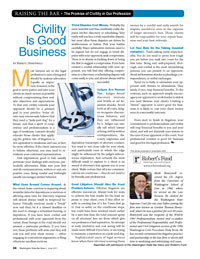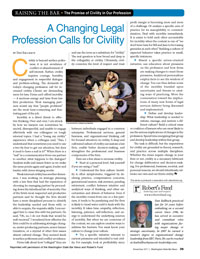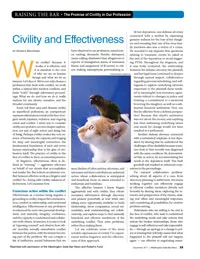Igniting a Culture of Civility
/Excerpts from the Article
By Paula Lustbader
...Robert’s Fund has joined with Bar News to publish a series of monthly columns to be written by some of the finest in our profession. In addition, in collaboration with other attorneys and with Seattle University School of Law, Robert’s Fund is developing curriculum for law schools and a series of CLE programs addressing civility within the profession...
...Why should we focus on lawyers? As a law professor, I am saddened when I hear about the growing disillusionment with the legal profession. However, I am gratified when I hear about former students making a positive difference. Lawyers exert a powerful influence within society. They play a significant and powerful role in governing this country...
About the Author
Paula Lustbader is a professor of law at Seattle University School of Law. She is the co-founder and director of the Law School’s Academic Resource Center, a 24-year-old program that provides the underrepresented access to law school and works to empower them to excel in the school and the profession. She is the president of Robert’s Fund.












